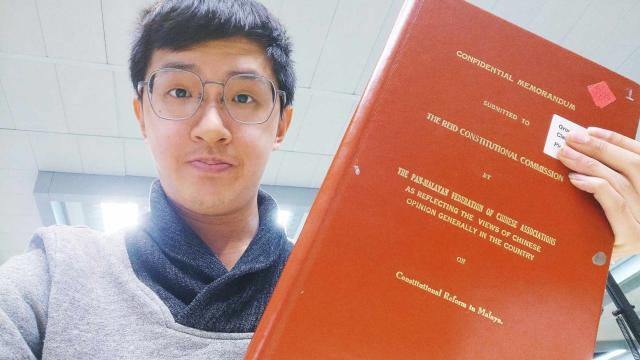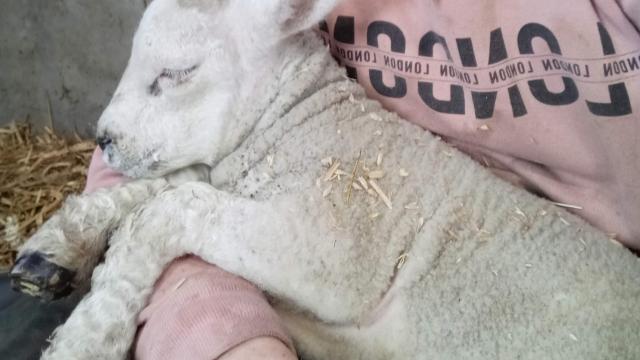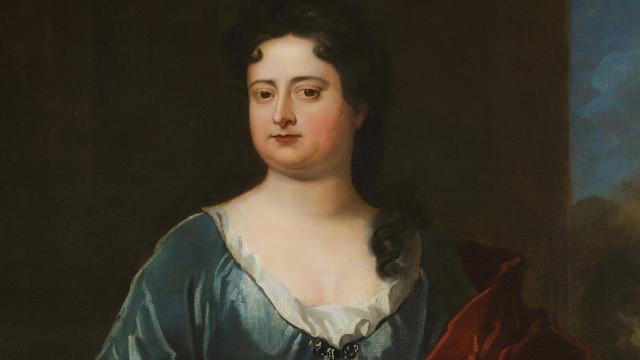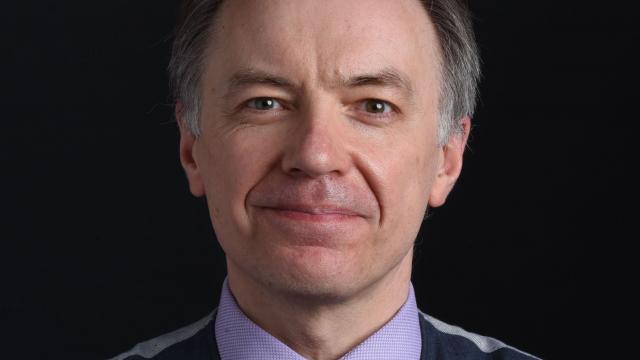
A Catz student has found that an innovative approach called radiomics (quantitative feature extraction from radiological images) can help predict whether people who have already experienced one stroke are at risk of another occurring. Elizabeth Le (2013, Natural Sciences) has been investigating radiomics as part of her PhD research and is the first author of a new paper published this month by Scientific Reports – part of the Nature portfolio.
Commenting on the potential impact of this research, Elizabeth explained:
“With a family history of cardiovascular disease, I am only too aware that heart attack and stroke remain among the biggest causes of death and disability. In the UK alone, there are more than 100,000 strokes in the UK each year, resulting in 38,000 deaths. Roughly one in every four existing stroke patients will experience another stroke within five years of their first event. Identifying who is at risk of a secondary stroke means that these vulnerable patients can start preventative treatment as soon as possible.”
At the moment, the standard approach for assessing patients at risk of a secondary stroke involves looking at scans of the major blood vessels in the neck (carotid arteries) and whether these have significantly narrowed beyond a threshold of 70%. Sadly, some patients with less narrowing still experience further strokes, and others with over 70% narrowing sometimes avoid this altogether.
“It is clear that we need to find a more reliable way to gauge risk for these patients. Radiomics is a powerful method that can improve disease diagnosis and prognostication – as already proven by its track record in oncology. Working with a multi-disciplinary team, I wanted to test the feasibility and robustness of radiomics for assessing patients at risk of secondary stroke.”
“I am delighted to have shown that radiomics is a robust way to analyse scans of stroke patients’ carotid arteries and we can identify features that are unaffected by human factors, such as clinician segmentation. Excitingly, the incorporation of machine learning techniques means that radiomics is a particularly promising tool when combined with analysis of carotid calcification. I look forward to Cambridge and other centres investigating whether this combination can achieve positive results in a clinical setting.”
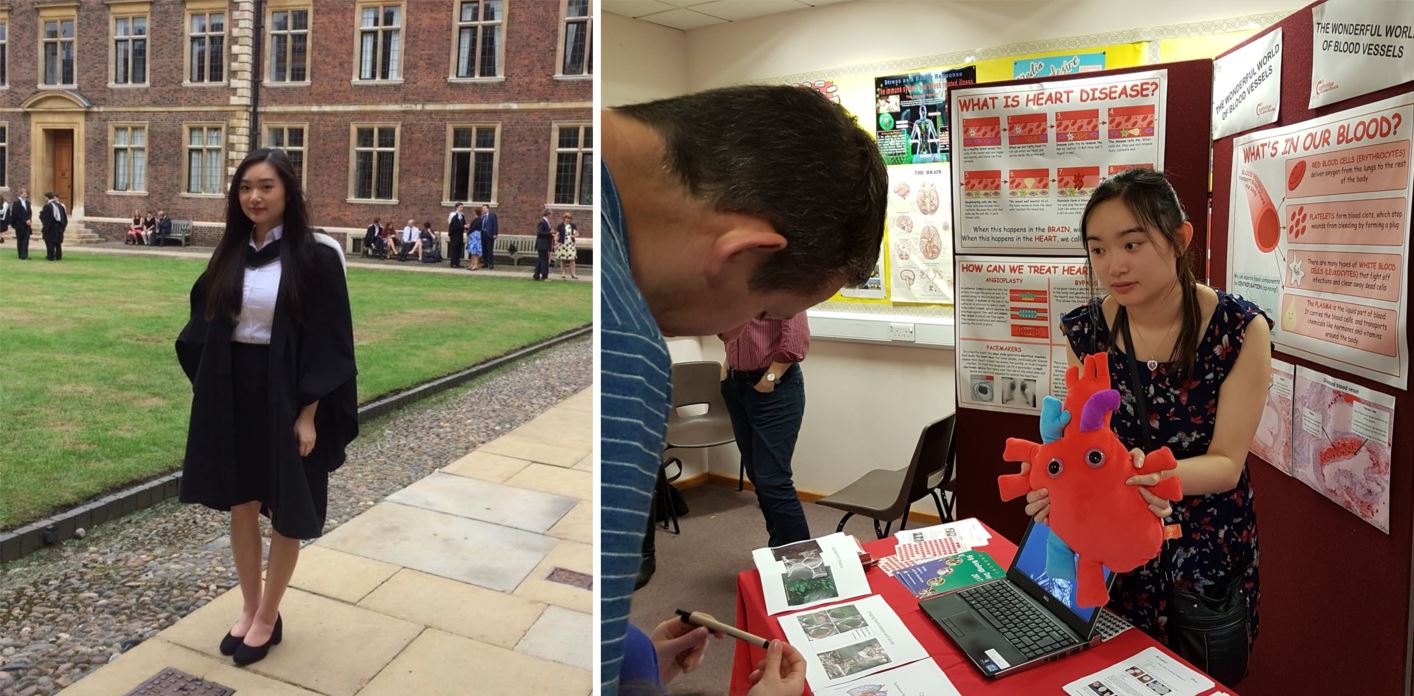 Pictured (left to right): Elizabeth at her BA graduation at Catz in 2016 and volunteering at the Cambridge Science Festival in 2018.
Pictured (left to right): Elizabeth at her BA graduation at Catz in 2016 and volunteering at the Cambridge Science Festival in 2018.
Elizabeth is one of a handful of Catz students who are part of the University of Cambridge’s MB/PhD Programme, which is designed for medical students who are interested in academic or research careers by enabling them to integrate a three-year period of research with their clinical education. She was inspired to choose this academic path after early experience of basic research during the first part of her degree:
“After studying Physiology, Development and Neuroscience, I knew I wanted to get more research experience and applied for the MB/PhD track. It is a great opportunity to develop cutting-edge research skills at an early stage, before you qualify as a doctor and while you are still in the midst of your studies. I am so grateful to my PhD supervisor Dr James Rudd (because I might not have applied for the MB PhD track without his support at the very beginning) and to the expertise of colleagues from across a wide range of fields who helped me complete and present this research.”
“I was keen to develop computational skills in some way as part of my PhD research. Coding never featured in the syllabus when I was at school, and I had always envied friends who had the ability to code! When I joined his laboratory, Dr Rudd had just acquired new texture analysis software and I was excited to be among the first to get to use it. I learned to programme from scratch, which took a good year and a half, but I was relieved to have this important skill set when research got underway.”
This year marked Elizabeth’s return to the clinical phase of her studies, having already submitted her PhD thesis. In fact, she has just passed her PhD viva – a milestone she celebrated with flatmates over takeaway and cake given lockdown restrictions. Reflecting on her own experience, she advises students who are considering the MB/PhD pathway to think carefully about their choice of PhD project:
“I would recommend choosing a subject that you are sure you will be interested in for a three-year period. Once you have narrowed the field a little, take the time to talk to potential supervisors and explore the types of projects you could be involved in as part of each team. These conversations will give you a flavour of what to expect and the support available to you during your research.”
